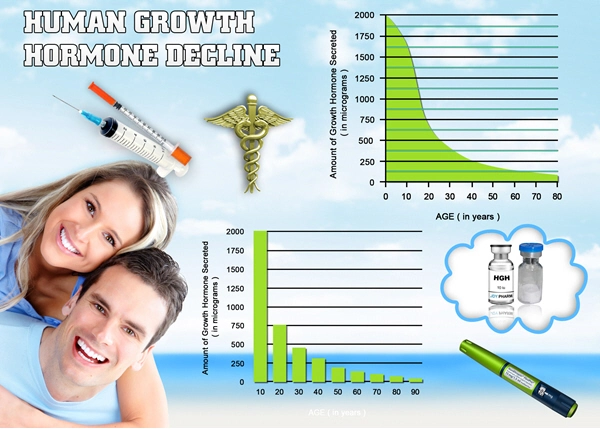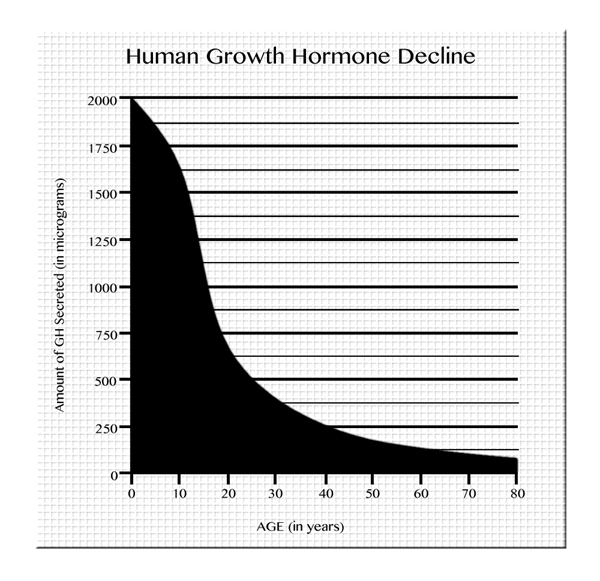Introduction
Testicular cancer, though relatively rare, is the most common cancer in American males aged 15 to 35. Early detection significantly improves prognosis and survival rates, making awareness and regular screening crucial. Despite this, many American men are unaware of the importance of testicular cancer screening or face barriers that prevent them from engaging in regular check-ups. This article explores the current state of testicular cancer screening practices among American males, identifies key barriers to screening, and provides recommendations for enhancing awareness and improving screening practices.
Current Screening Practices
The American Cancer Society recommends that men perform monthly testicular self-examinations (TSE) starting at puberty. However, adherence to these guidelines is suboptimal. Studies indicate that only about 10% to 20% of American males regularly perform TSE. This low compliance rate is concerning, as early detection through regular screening can lead to timely intervention and better outcomes.
Barriers to Screening
Several barriers contribute to the low screening rates among American males. One significant barrier is a lack of awareness. Many men are unaware of the importance of regular TSE or do not know how to perform them correctly. Additionally, cultural and social stigma surrounding male genital health can deter men from seeking information or performing self-exams.
Another barrier is the lack of education from healthcare providers. Primary care physicians often do not discuss testicular cancer screening with their patients, either due to time constraints or a belief that the topic is not a priority. This lack of professional guidance can leave men uninformed about the need for regular screening.
Fear and embarrassment also play a role. Many men feel uncomfortable discussing or examining their testicles, which can prevent them from seeking medical advice or performing TSE. This discomfort is compounded by a general reluctance among men to seek healthcare services, a phenomenon known as "masculine stoicism."
Enhancing Awareness
To improve testicular cancer screening rates, it is essential to enhance awareness through targeted educational campaigns. These campaigns should utilize various media platforms, including social media, television, and print media, to reach a broad audience. Educational materials should be clear, concise, and provide step-by-step instructions on how to perform TSE.
Schools and universities can play a pivotal role in educating young males about the importance of testicular cancer screening. Incorporating TSE education into health classes can normalize the practice and encourage young men to start performing regular self-exams.
Recommendations for Healthcare Providers
Healthcare providers must take a more proactive role in promoting testicular cancer screening. During routine check-ups, physicians should discuss the importance of TSE and demonstrate the technique to their patients. This hands-on approach can demystify the process and encourage men to take their health seriously.
Additionally, healthcare providers should be trained to address the cultural and social stigmas associated with male genital health. By creating a supportive and non-judgmental environment, physicians can help alleviate the fear and embarrassment that many men experience when discussing testicular health.
Policy and Community Initiatives
Policy initiatives can also support improved screening practices. Health insurance plans should cover testicular cancer screening and related educational programs, making it easier for men to access these services. Community health organizations can offer free screening events and workshops to raise awareness and provide hands-on training in TSE.
Conclusion
Testicular cancer screening is a critical component of men's health that requires increased attention and action. By addressing the barriers to screening, enhancing awareness, and implementing targeted educational and policy initiatives, we can improve screening rates among American males. Through these efforts, we can ensure that more men engage in regular TSE, leading to earlier detection and better health outcomes for those at risk of testicular cancer.

- Navigating Life After Testicular Cancer: A Guide for American Male Survivors [Last Updated On: December 28th, 2025] [Originally Added On: February 19th, 2025]
- Routine Check-ups Crucial for American Men's Testicular Health and Early Cancer Detection [Last Updated On: March 17th, 2025] [Originally Added On: March 17th, 2025]
- Testicular Health: Essential Guide for American Males' Physical and Mental Well-being [Last Updated On: March 17th, 2025] [Originally Added On: March 17th, 2025]
- Economic Challenges of Testicular Cancer Treatment for American Males: Costs and Support [Last Updated On: March 17th, 2025] [Originally Added On: March 17th, 2025]
- Testicular Health's Impact on Prostate Wellness in American Men: A Scientific Insight [Last Updated On: March 19th, 2025] [Originally Added On: March 19th, 2025]
- Testicular Health and Male Infertility: Diagnosis, Treatment, and Supportive Care [Last Updated On: March 19th, 2025] [Originally Added On: March 19th, 2025]
- Exercise Enhances Testicular Health in American Males: A Comprehensive Review [Last Updated On: March 20th, 2025] [Originally Added On: March 20th, 2025]
- Understanding Testicular Pain: Causes, Diagnosis, and Treatment for American Men [Last Updated On: March 20th, 2025] [Originally Added On: March 20th, 2025]
- Stress Impact on Testicular Health: Insights for American Men [Last Updated On: March 21st, 2025] [Originally Added On: March 21st, 2025]
- Diabetes and Testicular Health: Impacts and Management Strategies for American Men [Last Updated On: March 21st, 2025] [Originally Added On: March 21st, 2025]
- Testicular Health and Cardiovascular Disease: A Critical Link for American Men [Last Updated On: March 21st, 2025] [Originally Added On: March 21st, 2025]
- Educating Young American Males on Testicular Health: Importance and Impact [Last Updated On: March 21st, 2025] [Originally Added On: March 21st, 2025]
- Smoking's Harmful Effects on Testicular Health in American Males: A Comprehensive Analysis [Last Updated On: March 21st, 2025] [Originally Added On: March 21st, 2025]
- Testicular Cancer Screening: Guidelines and Self-Exam Techniques for American Men [Last Updated On: March 21st, 2025] [Originally Added On: March 21st, 2025]
- Ultrasound: Revolutionizing Testicular Health Diagnosis in American Males [Last Updated On: March 22nd, 2025] [Originally Added On: March 22nd, 2025]
- Testicular Health and Autoimmune Disorders: Insights for American Men [Last Updated On: March 22nd, 2025] [Originally Added On: March 22nd, 2025]
- Anabolic Steroids: Risks and Impacts on American Men's Testicular Health [Last Updated On: March 22nd, 2025] [Originally Added On: March 22nd, 2025]
- Testicular Health and Hormone Therapy: Essential Insights for American Men [Last Updated On: March 22nd, 2025] [Originally Added On: March 22nd, 2025]
- Viral Infections and Testicular Health: Impacts on Fertility in American Males [Last Updated On: March 23rd, 2025] [Originally Added On: March 23rd, 2025]
- Sleep Quality's Impact on Testicular Health: A Vital Link for American Males [Last Updated On: March 24th, 2025] [Originally Added On: March 24th, 2025]
- Radiation Therapy's Impact on Testicular Health: Insights for American Males [Last Updated On: March 24th, 2025] [Originally Added On: March 24th, 2025]
- Community Support Enhances Testicular Health Awareness in American Males [Last Updated On: March 24th, 2025] [Originally Added On: March 24th, 2025]
- Occupational Hazards and Testicular Health: Risks, Prevention, and Screening for American Workers [Last Updated On: March 24th, 2025] [Originally Added On: March 24th, 2025]
- Overcoming Psychological Barriers to Testicular Health Care in American Males [Last Updated On: March 25th, 2025] [Originally Added On: March 25th, 2025]
- Illicit Drugs' Impact on Testicular Health: Risks and Prevention for American Men [Last Updated On: March 25th, 2025] [Originally Added On: March 25th, 2025]
- Genetic Counseling's Vital Role in Preventing Testicular Cancer: Latest Advances [Last Updated On: March 25th, 2025] [Originally Added On: March 25th, 2025]
- Testicular Health: Vital for Preventing Chronic Diseases in American Males [Last Updated On: March 25th, 2025] [Originally Added On: March 25th, 2025]
- Endocrine Disruptors' Impact on Testicular Health: Risks and Mitigation for American Males [Last Updated On: March 25th, 2025] [Originally Added On: March 25th, 2025]
- Testicular Health in Aging American Men: Hormones, Monitoring, and Treatment Options [Last Updated On: March 25th, 2025] [Originally Added On: March 25th, 2025]
- Nutrition's Vital Role in American Men's Testicular Health and Fertility [Last Updated On: March 25th, 2025] [Originally Added On: March 25th, 2025]
- Public Health Campaigns Boost Testicular Health Awareness and Self-Exams in American Men [Last Updated On: March 26th, 2025] [Originally Added On: March 26th, 2025]
- Testicular Health and Reproductive Rights: Empowering American Men [Last Updated On: March 26th, 2025] [Originally Added On: March 26th, 2025]
- Socioeconomic Factors Impacting Testicular Health Care Access in American Males [Last Updated On: March 26th, 2025] [Originally Added On: March 26th, 2025]
- Breaking Barriers: Enhancing Testicular Health Awareness and Support for American Males [Last Updated On: March 26th, 2025] [Originally Added On: March 26th, 2025]
- Chemotherapy's Impact on Testicular Health in American Male Cancer Survivors [Last Updated On: March 26th, 2025] [Originally Added On: March 26th, 2025]
- Testicular Health and Cancer: Essentials, Detection, and Life After Diagnosis [Last Updated On: March 26th, 2025] [Originally Added On: March 26th, 2025]
- Lifestyle Diseases and Testicular Health: Strategies for American Men [Last Updated On: March 27th, 2025] [Originally Added On: March 27th, 2025]
- Antioxidants: Key to Enhancing Testicular Health and Fertility in American Men [Last Updated On: March 27th, 2025] [Originally Added On: March 27th, 2025]
- Testicular Health: Understanding Functions, Conditions, and Educational Needs for American Males [Last Updated On: March 27th, 2025] [Originally Added On: March 27th, 2025]
- Exercise Impacts on Testicular Health: Insights for American Men [Last Updated On: March 27th, 2025] [Originally Added On: March 27th, 2025]
- Testicular Health's Psychological Impact on American Men's Body Image and Masculinity [Last Updated On: March 27th, 2025] [Originally Added On: March 27th, 2025]
- Alcohol's Impact on Testicular Health: Risks and Mitigation Strategies for Men [Last Updated On: March 27th, 2025] [Originally Added On: March 27th, 2025]
- Vitamins A, D, E, C, B, and Zinc: Essential for American Men's Testicular Health [Last Updated On: March 27th, 2025] [Originally Added On: March 27th, 2025]
- Testicular Health: Breaking Stigma, Promoting Self-Exams and Open Dialogue [Last Updated On: March 27th, 2025] [Originally Added On: March 27th, 2025]
- Environmental Impacts on Testicular Health: Awareness and Action for American Males [Last Updated On: March 27th, 2025] [Originally Added On: March 27th, 2025]
- Testicular Health and Immune Function: A Vital Connection for Male Wellness [Last Updated On: March 27th, 2025] [Originally Added On: March 27th, 2025]
- Heat Exposure and Testicular Health: Impacts and Strategies for American Men [Last Updated On: March 28th, 2025] [Originally Added On: March 28th, 2025]
- Support Groups: Vital for American Men with Testicular Cancer [Last Updated On: March 28th, 2025] [Originally Added On: March 28th, 2025]
- Modern Lifestyles and Their Impact on American Men's Testicular Health [Last Updated On: March 28th, 2025] [Originally Added On: March 28th, 2025]
- Telemedicine: Revolutionizing Testicular Health Services for American Men [Last Updated On: March 29th, 2025] [Originally Added On: March 29th, 2025]
- Managing Chronic Testicular Pain: Strategies and Prevention for Male Health [Last Updated On: March 29th, 2025] [Originally Added On: March 29th, 2025]
- Testicular Health: Cancer, Fertility, and Lifestyle Impact on American Males [Last Updated On: March 30th, 2025] [Originally Added On: March 30th, 2025]
- Testicular Health: Self-Exams, Cancer Awareness, and Preventive Lifestyle for American Males [Last Updated On: March 31st, 2025] [Originally Added On: March 31st, 2025]
- Herbal Supplements for Testicular Health: Benefits and Considerations for American Men [Last Updated On: April 2nd, 2025] [Originally Added On: April 2nd, 2025]
- Testicular Health and Mental Resilience: A Holistic Approach for American Men [Last Updated On: April 3rd, 2025] [Originally Added On: April 3rd, 2025]
- Antibiotics' Impact on Testicular Health: Risks and Strategies for American Men [Last Updated On: April 5th, 2025] [Originally Added On: April 5th, 2025]
- Testicular Health and Environmental Impact: A Call for Policy Change [Last Updated On: April 5th, 2025] [Originally Added On: April 5th, 2025]
- Promoting Testicular Health: Education, Self-Exams, and Public Health Initiatives for American Males [Last Updated On: April 6th, 2025] [Originally Added On: April 6th, 2025]
- Advancements in Testicular Health and Reproductive Technologies in the U.S. [Last Updated On: April 6th, 2025] [Originally Added On: April 6th, 2025]
- Pesticide Exposure and Testicular Health in American Men: A Growing Concern [Last Updated On: April 7th, 2025] [Originally Added On: April 7th, 2025]
- Mental Health Professionals' Vital Role in Enhancing Testicular Health Awareness Among American Men [Last Updated On: April 8th, 2025] [Originally Added On: April 8th, 2025]
- Heavy Metals' Impact on Testicular Health in American Men: Risks and Prevention [Last Updated On: April 8th, 2025] [Originally Added On: April 8th, 2025]
- Empowering American Males: Understanding and Promoting Testicular Health [Last Updated On: April 10th, 2025] [Originally Added On: April 10th, 2025]
- Plastics' Chemical Impact on Testicular Health in American Men: A Comprehensive Analysis [Last Updated On: April 12th, 2025] [Originally Added On: April 12th, 2025]
- Physical Therapy's Vital Role in Managing Testicular Health Issues for American Men [Last Updated On: April 12th, 2025] [Originally Added On: April 12th, 2025]
- Enhancing Men's Health: Integrating Testicular Health into Workplace Wellness Programs [Last Updated On: April 13th, 2025] [Originally Added On: April 13th, 2025]
- Testicular Health: Science, Common Conditions, and U.S. Reproductive Policies for Men [Last Updated On: April 13th, 2025] [Originally Added On: April 13th, 2025]
- Testicular Health: Cancer Risks, Self-Exams, and Fertility for American Males [Last Updated On: April 15th, 2025] [Originally Added On: April 15th, 2025]
- Genetic Testing: Revolutionizing Testicular Health Management for American Men [Last Updated On: April 15th, 2025] [Originally Added On: April 15th, 2025]
- Air Pollution's Impact on American Men's Testicular Health: Emerging Research and Concerns [Last Updated On: April 15th, 2025] [Originally Added On: April 15th, 2025]
- Testicular Health Advocacy: Urgent Need for Policy Change and Public Awareness [Last Updated On: April 16th, 2025] [Originally Added On: April 16th, 2025]
- Testicular Health and Mental Well-being: A Holistic Guide for American Males [Last Updated On: April 16th, 2025] [Originally Added On: April 16th, 2025]
- Integrating Testicular and Mental Health Services for Holistic Male Care [Last Updated On: April 17th, 2025] [Originally Added On: April 17th, 2025]
- Educational Campaigns Boost Testicular Cancer Awareness and Early Detection in American Men [Last Updated On: April 18th, 2025] [Originally Added On: April 18th, 2025]
- Exercise Benefits for Testicular Health in American Men: A Comprehensive Guide [Last Updated On: April 18th, 2025] [Originally Added On: April 18th, 2025]
- Water Contaminants' Impact on Testicular Health: Risks and Mitigation Strategies [Last Updated On: April 18th, 2025] [Originally Added On: April 18th, 2025]
- Nutrition's Vital Role in American Males' Testicular Health and Function [Last Updated On: April 18th, 2025] [Originally Added On: April 18th, 2025]
- Environmental Pollutants and Testicular Health: An Environmental Justice Perspective [Last Updated On: April 21st, 2025] [Originally Added On: April 21st, 2025]
- Rising Testicular Cancer Trends and Early Detection in American Males [Last Updated On: April 21st, 2025] [Originally Added On: April 21st, 2025]
- Climate Change's Impact on American Men's Testicular Health: Risks and Mitigation [Last Updated On: April 21st, 2025] [Originally Added On: April 21st, 2025]



List of USA state clinics - click a flag below for blood testing clinics.
Word Count: 600


















































